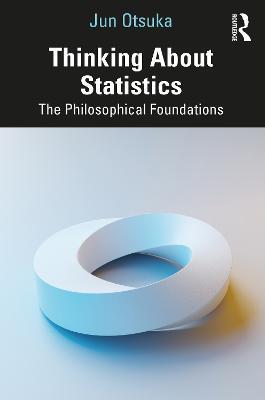Thinking About Statistics: The Philosophical Foundations

Thinking About Statistics: The Philosophical Foundations
Another highlight of the book is its analysis of the ontological assumptions that underpin statistical reasoning, such as the uniformity of nature, natural kinds, real patterns, possible worlds, causal structures, etc. Moreover, recent developments in deep learning indicate that machines are carving out their own "ontology" (representations) from data, and better understanding this-a key objective of the book-is crucial for improving these machines' performance and intelligibility. Key Features Without assuming any prior knowledge of statistics, discusses philosophical aspects of traditional as well as cutting-edge statistical methodologies.
Draws parallels between various methods of statistics and philosophical epistemology, revealing previously ignored connections between the two disciplines.
Written for students, researchers, and professionals in a wide range of fields, including philosophy, biology, medicine, statistics and other social sciences, and business.
Originally published in Japanese with widespread success, has been translated into English by the author.
PRP: 364.70 Lei
Acesta este Prețul Recomandat de Producător. Prețul de vânzare al produsului este afișat mai jos.
328.23Lei
328.23Lei
364.70 LeiLivrare in 2-4 saptamani
Descrierea produsului
Another highlight of the book is its analysis of the ontological assumptions that underpin statistical reasoning, such as the uniformity of nature, natural kinds, real patterns, possible worlds, causal structures, etc. Moreover, recent developments in deep learning indicate that machines are carving out their own "ontology" (representations) from data, and better understanding this-a key objective of the book-is crucial for improving these machines' performance and intelligibility. Key Features Without assuming any prior knowledge of statistics, discusses philosophical aspects of traditional as well as cutting-edge statistical methodologies.
Draws parallels between various methods of statistics and philosophical epistemology, revealing previously ignored connections between the two disciplines.
Written for students, researchers, and professionals in a wide range of fields, including philosophy, biology, medicine, statistics and other social sciences, and business.
Originally published in Japanese with widespread success, has been translated into English by the author.
Detaliile produsului










